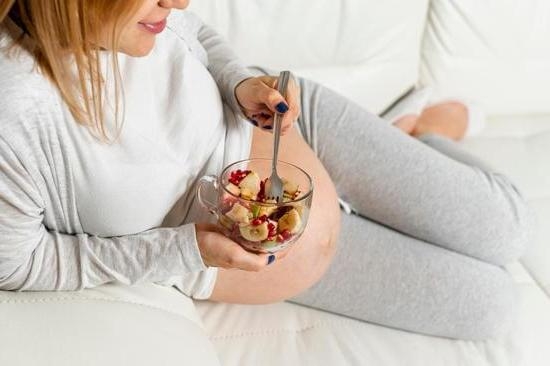### What Is a Chemical Pregnancy?
A chemical pregnancy is a nonviable very early pregnancy loss that occurs shortly after implantation. The loss is typically so early that it’s not clinically recognized as a miscarriage. Chemical pregnancies are estimated to account for 50–75% of all miscarriages and occur shortly after implantation and prior to the missed menstrual period.
### Causes of a Chemical Pregnancy
Most chemical pregnancies are caused by chromosomal abnormalities in the embryo. These abnormalities prevent the embryo from further development and the body spontaneously passes the pregnancy in the form of a light menstrual period.
Other potential causes of a chemical pregnancy may include:
– Hormonal imbalance
– Uterine abnormalities
– Incompetent cervix
– Age: The risk of miscarriage increases after age 35
– Certain medical conditions like diabetes, thyroid disorders, or lupus
– Maternal infections
– Intrauterine adhesions
– Environmental toxins
– Smoking
– Drug or alcohol use
### Risk Factors for a Chemical Pregnancy
Women have a higher risk of dealing with a chemical pregnancy if they have any of the following:
– Personal history of infertility
– Previous miscarriages
– Advanced age
– Smoking
– Cervical abnormalities
– Poor egg quality
– Poor sperm quality
– Conception through assisted reproductive technology (ART)
### Signs of a Chemical Pregnancy
The signs of a chemical pregnancy are generally similar to a regular miscarriages. They include:
– A positive pregnancy test
– Bleeding that may be light to heavy
– Mild cramping
– Passing of tissue
## Conclusion
Chemical pregnancies can be hard to detect because they often go unrecognized. But when detected, there are a variety of potential causes that can be linked to them. If a chemical pregnancy is suspected, it’s important to consult a doctor for guidance and treatment.
Chemical Pregnancy: What Is It?
A Chemical Pregnancy is a very early pregnancy loss which happens during the first trimester. It occurs when a fertilized egg implants into the uterine wall, but a baby never develops, and the pregnancy is ultimately not carried to term. It is also referred to as a biochemical pregnancy or an early miscarriage.
Signs & Symptoms of a Chemical Pregnancy
Typical signs and symptoms of a Chemical Pregnancy may include:
- A Positive Pregnancy Test, followed by a Negative Pregnancy Test
- Light Spotting or Bleeding
- Low or no level of β-hCG
- Gastrointestinal symptoms
- Decreased Tenderness of the Breasts
- Mild Discomfort in the Lower Abdomen
Diagnosis and Testing
In order to confirm a Chemical Pregnancy, a doctor may perform a variety of tests such as:
- Blood Tests – to measure the level of β-hCG
- Ultrasounds – to look for a gestational sac and/or fetal heartbeat
- Urine Tests – to detect the presence of hCG
- D&C – Dilation & Curettage to confirm a diagnosis
What Causes a Chemical Pregnancy?
Common causes of a Chemical Pregnancy can include:
- Low Progesterone Levels: Low levels of progesterone can prevent a fertilized egg from properly implanting into the uterine wall.
- Genetic Abnormalities: Improper chromosomal composition can cause a Chemical Pregnancy.
- Hormone Imbalance: An imbalance of hormones in the body can also cause a Chemical Pregnancy.
- Uterine Abnormalities: An abnormality in the anatomy of the uterus can cause a Chemical Pregnancy.
- Infections: Certain infections, such as Chlamydia and Ureaplasma, can be responsible for a Chemical Pregnancy.
- Age: A woman’s age can affect her fertility and lead to a Chemical Pregnancy.
Treatment for Chemical Pregnancy
Most Chemical Pregnancies do not require any treatment as the body will naturally expel the embryo without any medical intervention. However, if the bleeding is excessive or the pain is severe, a doctor may recommend certain medications or surgical procedures such as a D&C.
It is important to seek medical advice after a Chemical Pregnancy to ensure that you are correctly diagnosed and that the underlying cause of the loss is identified and managed properly.
Prevention
There are certain steps that can be taken to minimize the risk of a Chemical Pregnancy, such as:
- Avoiding Cigarettes, Alcohol, and Drugs
- Getting Regular Exercise & Eating a Balanced Diet
- Practicing Safe Sex Practices
- Managing Stress Levels
- Taking Preconception Vitamins
- Getting Regular Prenatal Checkups & Scans
The Bottom Line
A Chemical Pregnancy is a very early pregnancy loss which occurs during the first trimester. Although there is no way to completely prevent a Chemical Pregnancy, there are certain measures that can help reduce the risk. It is important to seek medical advice if you experience symptoms or suspect a Chemical Pregnancy.

Welcome to my fertility blog. This is a space where I will be sharing my experiences as I navigate through the world of fertility treatments, as well as provide information and resources about fertility and pregnancy.





